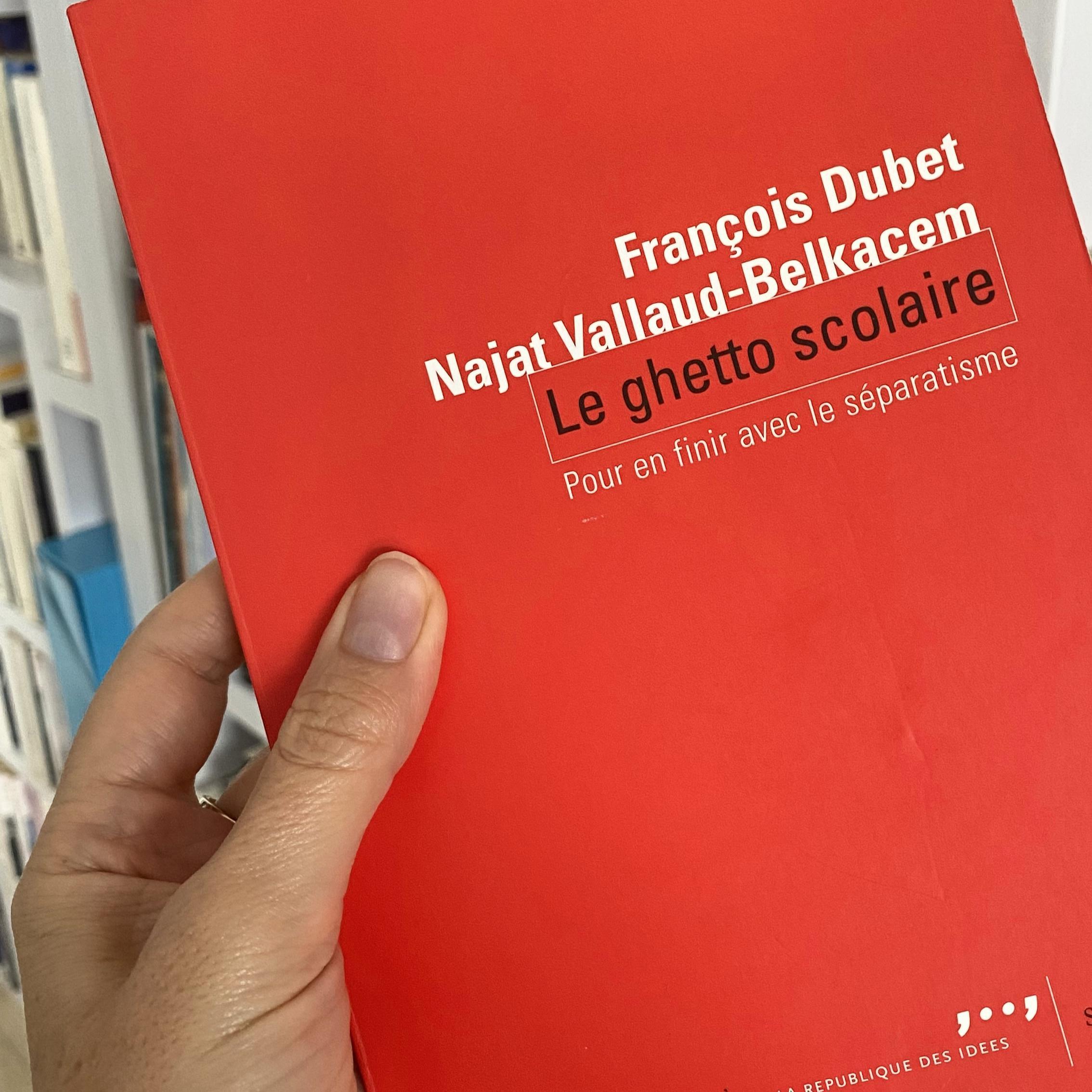18 novembre 2024
Surpassing Shanghai
A fascinating book written in 2011 that remains highly relevant today. The author reviews several education systems that have successfully transformed themselves—Shanghai, Japan, Singapore, Canada, and Finland—to identify common characteristics.
Educational System
Transformation
Book
A fascinating book written in 2011 that remains highly relevant today.
The author reviews several education systems that have successfully transformed themselves—Shanghai, Japan, Singapore, Canada, and Finland—to identify common characteristics.
The author reviews several education systems that have successfully transformed themselves—Shanghai, Japan, Singapore, Canada, and Finland—to identify common characteristics.
Keys to Educational Success:
- Targeted Investment for Equity. The most successful countries allocate more resources to students who face greater challenges, ensuring equal opportunities for all.
-
A Long-Term Vision. These nations implement public policies to improve education on a large scale, maintaining a consistent plan for over a decade without interruptions or modifications. They create coherent, complex, and powerful instructional systems.
They also draw on best practices and overcome biases, setting clear objectives and securing alignment among all key stakeholders. -
Quality, Equity, and Productivity. Prosperous nations aim to be high-wage countries, making it a national agenda to achieve high education standards that provide meaningful employment for their citizens.
They often excel simultaneously in quality, equity, and productivity. -
Alignment with Industry Needs. These systems establish strong coherence between school curricula and the skills required by industry, ensuring alignment between advanced-level programs, exams, and university admission requirements.
They focus not only on technical skills but also on values, personal habits, and capabilities essential for success, such as problem-solving and applying knowledge to practical situations. -
Exceptional Teaching. These countries strike a balance between specificity and flexibility for teachers. They provide clear guidelines without dictating detailed lesson plans.
High-quality teaching is prioritized, requiring solid subject mastery, a commitment to engagement, applied intelligence, and the ability to offer creative and often unique solutions. Teachers are expected to analyze and synthesize their knowledge while also serving as friends, mentors, and guides.
Teaching is a highly respected profession, offering competitive pay, good working conditions, and incentives for working in remote areas. Career trajectories are also carefully structured, ensuring financial growth over time (as seen in Japan) without rapid salary caps.
An Inspiring Example: Ontario
One particularly compelling example is Ontario, which began with a very challenging situation: widespread disillusionment among teachers and families, coupled with a massive reliance on private education (55,000 students opted out of the public system in 2000). This situation was reversed with the election of the McGuinty government, which ran on a clear education-focused mandate.
This was truly a “civilization policy” for the province: “A country counting on its Human Resources for its prosperity.” The Minister of Education, exceptionally well-prepared, took the time to meet with stakeholders through a bottom-up approach (6,000 meetings) and assembled a mixed team of academic experts, practitioners, and policymakers.
This national commitment, grounded in a comprehensive and collaboratively negotiated action plan with unions, transformed the system within a decade. While Ontario only has 5,000 schools, it serves as an excellent case study for successful transformation, built on a newly defined mission, a clear transformation agenda, and a co-authored plan by all stakeholders, executed with consistency in political action and follow-through.
Extract from an interview of Marc. S. Tucker about his book
“The most successful countries […]put more money behind the kids who are harder to get to high standards than those who are relatively easy to get to high standards. […] They have a much more robust instructional system. They have a core curriculum that all students are required to take that includes their own language, foreign languages, mathematics, the sciences, world history, their own history and art and music. They have internationally benchmarked standards for these subjects and examinations that are based on the curriculum. […] Their exams are typically very high quality. For the most part these countries do not use the kind of multiple choice, computer-scored tests. There is a much greater emphasis on written essays and problem solving. When you talk to people from the ministries of education in the top-10 performing countries, they rarely talk about the importance of students learning basic skills. They assume basic skills are being learned. They talk about assessing complex skills, innovation and creative capacity. These are skills that are going to be essential to individual success and national success in the 21st century.
We have a low-quality teacher recruiting strategy. We recruit from the bottom achievers, we pay them much less, and we offer them a working environment that is nowhere near as attractive. In the top-performing countries, their teacher education programs look a lot more like our medical education programs. They recruit from the top third – and in some countries, the top 10 and even 5 percent – of their college students. […] They rely on teachers to be the first source of analysis on how to improve education.
If you look 100 years back in the United States, we had in this country the fastest expansion of mass production in the world. We had many relatively uneducated people coming from countries in southern Europe and from the south into our northern cities. We needed a way to provide an eighth grade level of education to the majority of young people in our country. We still have that system in place, but the world has changed. Now, a country that succeeds politically, culturally and economically going forward, is going to succeed only if provides the kind and quality of education to everybody that we used to think appropriate only for the elite, no more than 15 percent of the population, a hundred years ago.’
We have a low-quality teacher recruiting strategy. We recruit from the bottom achievers, we pay them much less, and we offer them a working environment that is nowhere near as attractive. In the top-performing countries, their teacher education programs look a lot more like our medical education programs. They recruit from the top third – and in some countries, the top 10 and even 5 percent – of their college students. […] They rely on teachers to be the first source of analysis on how to improve education.
If you look 100 years back in the United States, we had in this country the fastest expansion of mass production in the world. We had many relatively uneducated people coming from countries in southern Europe and from the south into our northern cities. We needed a way to provide an eighth grade level of education to the majority of young people in our country. We still have that system in place, but the world has changed. Now, a country that succeeds politically, culturally and economically going forward, is going to succeed only if provides the kind and quality of education to everybody that we used to think appropriate only for the elite, no more than 15 percent of the population, a hundred years ago.’
For the Altitudes Foundation
This book is an invitation to reflect and take action, focusing on long-term, in-depth work with associations and their audiences (students, families, and teachers). Through various examples of successful transformation, it becomes clear that change is not solely a cultural matter but also a question of determination, method, sustained effort, and active listening. And it’s possible!
It encourages us to support the development of associations, giving them a strong voice and the ability to resonate with policymakers to influence public policy. Ultimately, only the national education system can transform itself; however, it will need to draw inspiration and stimulation from trusted partners working collaboratively with the education system.
-----
Who is Marc S. Tucker ? Tucker is the founder of the National Center on Education and the Economy and has been a leader of the standards-driven education reform movement for many years. He created New Standards, a 23-state consortium designed to develop internationally benchmarked student performance standards and matching student examinations. He authored the 1986 Carnegie Report, A Nation Prepared: Teachers for the 21st Century, which called for a restructuring of America's schools based on standards; created the National Board for Professional Teaching Standards; created the Commission on the Skills of the American Workforce and co-authored its report, America's Choice: high skills or low wages!, which called for a new high school leaving certificate based on standards; and was instrumental in creating the National Skill Standards Board and served as the chairman of its committee on standards and assessment policy. Tucker also created the National Institute of School Leadership, the largest executive development program for school leaders in the United States.
On the same topics
Fondation Altitudes is under the aegis
of Fondation Caritas France
of Fondation Caritas France
.jpg)
.png)
